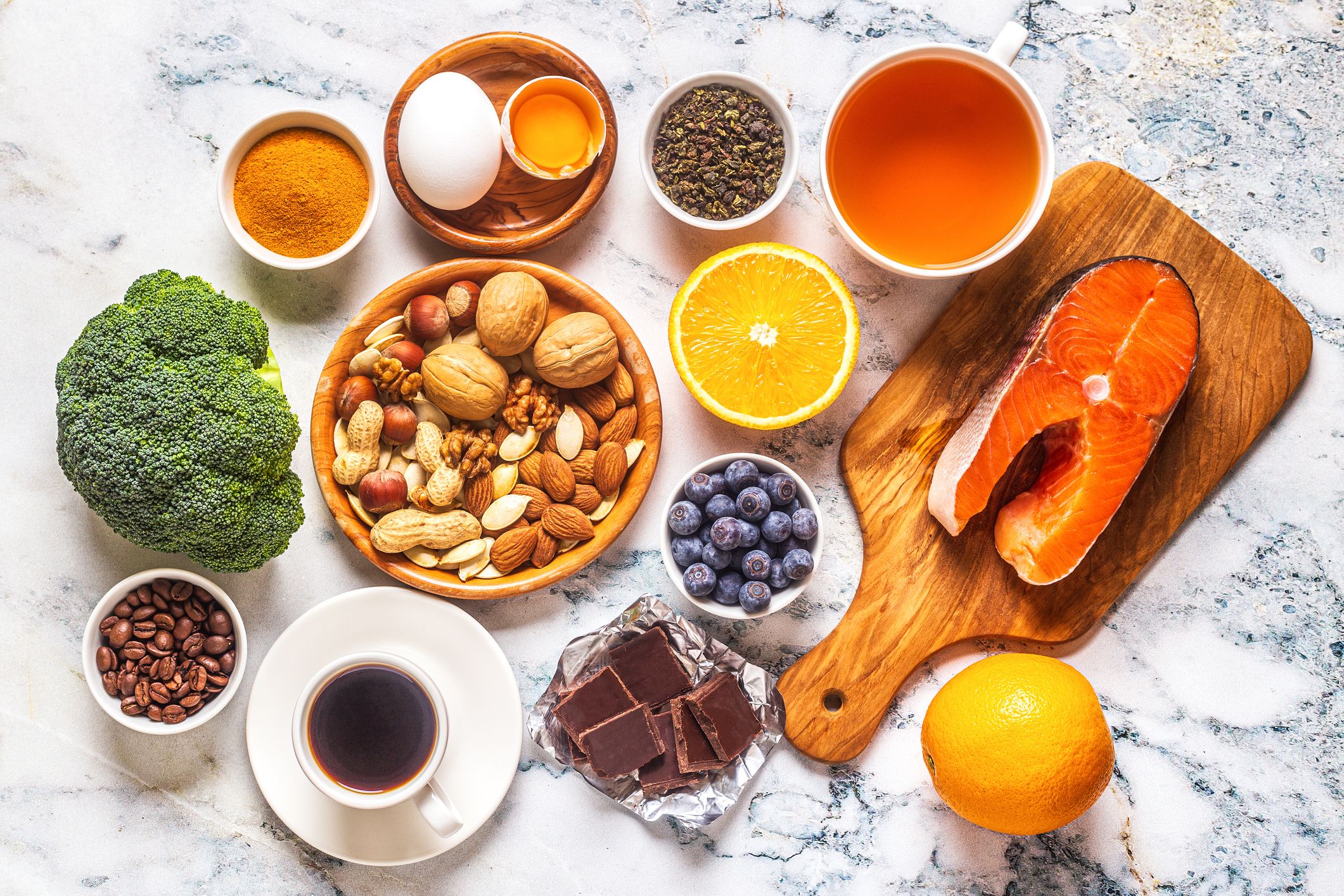What is the Best Food for Brain Memory?
The best food for brain memory is a balanced diet that includes fruits, vegetables, whole grains, lean proteins, and healthy fats. These foods provide essential nutrients that support brain health and cognitive function.
The brain is one of the most important organs in the body, responsible for controlling our thoughts, emotions, and actions. To keep the brain functioning at its best, it is essential to fuel it with the right nutrients. A diet rich in fruits, vegetables, whole grains, lean proteins, and healthy fats can provide the vital nutrients needed to improve memory and cognitive function.
Some specific foods known for improving brain health include berries, nuts, fatty fish, and leafy green vegetables. It is essential to incorporate these foods into your diet to maintain good brain health.

Credit: www.prevention.com
The Biology Of Brain Memory
Our brain memory is a complex process involving neurons and synapses. When memories are formed, neurons communicate with each other via synapses and strengthen connections. During recall, neurons reactivate the same pattern of connections. Nutrition is vital for brain function and memory.
Omega-3 fatty acids, found in fish and nuts, improve cognitive function. Antioxidants like vitamin e and c, found in berries and vegetables, protect brain cells from damage caused by free radicals. Choline, present in eggs, helps in the production of neurotransmitters.
B-vitamins, found in leafy greens and whole grains, improve brain health. Moreover, staying hydrated is necessary to improve concentration and cognitive abilities. A balanced diet with rich and varied nutrition is the best way to keep your brain healthy and improve memory.
Nutrients Your Brain Needs
Proper nutrition is vital for optimal brain function and memory. The brain requires various vitamins and minerals to function correctly. Key nutrients include omega-3 fats, b vitamins, and vitamin e. antioxidants, such as vitamin c and e, help fight against inflammation in the brain.
Anti-inflammatory compounds like curcumin and flavonoids also play an essential role in cognitive health. Foods that support brain function include blueberries, dark chocolate, nuts, and fatty fish like salmon. Consuming a variety of foods rich in brain-boosting nutrients and antioxidants can promote cognitive health and improve memory retention.
Best Foods For Memory
Eating the right foods can enhance brain function and memory. One of the best foods for memory is fish, which is rich in omega-3 fatty acids. Leafy greens are also an excellent choice because they contain a variety of nutrients that are vital for brain health.
Berries are packed with polyphenols, which protect the brain from oxidative stress. Nuts and seeds are another healthy option, as they contain healthy fats and other important nutrients. Finally, dark chocolate is a delicious memory-booster because it contains flavonoids that improve blood flow to the brain.
Incorporating these foods into your diet can help improve cognitive function and memory retention over time.
Foods To Avoid Or Limit
Limiting processed and fast foods is crucial for brain function. These types of foods decrease cognitive abilities, leading to memory issues. Saturated and trans fats, found in fried and greasy foods, also have negative effects on brain function. They can cause inflammation and contribute to memory decline.
Sugar and artificial sweeteners can also harm memory and brain function. They can cause insulin resistance and inflammation, leading to memory issues. Limiting intake of these foods can improve brain function and memory retention.
The Role Of Hydration
Staying hydrated is crucial for maintaining cognitive function. Dehydration can negatively affect memory and focus. To improve brain memory and function, aim to drink at least eight glasses of water daily. If plain water isn’t your thing, add slices of fruit or herbs to infuse your water with natural flavors.
Additionally, eating water-rich fruits and vegetables can also contribute to staying hydrated. Foods like watermelon, cucumber, and strawberries can provide a refreshing change while keeping you hydrated. Remember, the more hydrated your body is, the better your brain will function.
So, keep a bottle of water with you at all times to ensure you stay hydrated throughout the day.
Meal Planning For Brain Health
Maintaining brain health is essential for a healthy lifestyle, and one crucial aspect is the food we consume. A balanced diet that includes nutrient-rich meals helps in cognitive function, memory retention and boosting brainpower. Eat a wide range of fruits, vegetables, lean proteins, and healthy fats.
Such foods will positively impact your brain’s functioning by providing essential nutrients such as vitamins, minerals, and antioxidants that protect from free radical damage. Snacking is an integral part of a healthy diet, and opting for nutritious snacks that boost brain power is an excellent choice.
Blueberries, nuts, seeds, dark chocolate, and yoghurt are snacks that enhance cognitive function, improve memory and alertness. Plan your meals, choose a variety of food groups, and consider adding brain-friendly snacks to your diet.
Lifestyle Factors That Support Brain Health
A healthy brain is a crucial element of a healthy life. Improving cognitive function should be a top priority for everyone. A healthy and balanced diet, exercise, and quality sleep are all critical for optimal brain health. The foods we eat can play a significant role in maintaining brain health and memory retention.
It is recommended to have a diet rich in fatty fish, leafy greens, nuts and seeds, and berries. Regular exercise has also been linked to improved cognitive function and memory. Lastly, getting quality sleep is crucial for memory formation and maintenance.
Ensure you are getting enough high-quality sleep every night by sticking to a consistent sleep schedule and optimizing your sleep environment to promote deep and restorative sleep.
Frequently Asked Questions On What Is The Best Food For Brain Memory?
What Foods Are Good For Memory Enhancement?
Blueberries, fatty fish, green leafy vegetables, turmeric, and whole grains are excellent for memory enhancement.
Can Drinking Too Much Coffee Negatively Impact Memory?
Yes, too much caffeine can disrupt sleep and negatively impact memory. Stick to one or two cups a day.
Does Eating Sugar Affect Memory Performance?
Yes, consuming too much sugar can impair cognitive ability and lead to memory loss.
How Can Nuts Help Improve Memory Function?
Nuts contain healthy fats and antioxidants that protect brain cells and enhance memory function.
Are There Any Specific Vitamins Or Minerals That Improve Memory?
Yes, vitamin b12, vitamin e, and omega-3 fatty acids are essential for maintaining healthy brain function and improving memory.
Conclusion
After reviewing numerous studies, it’s clear that certain foods can boost brain memory. Foods rich in omega-3 fatty acids, such as oily fish, nuts, and seeds, have been shown to improve memory and cognitive function. Other memory-boosting foods include berries, dark chocolate, and green tea.
While a healthy diet can benefit overall brain function, it’s important to remember that no one food can magically improve memory on its own. A balanced diet, exercise, quality sleep, and stress reduction are all crucial in maintaining optimal brain health.
Additionally, it’s important to remember that a healthy lifestyle is not a one-time fix, but a lifelong commitment to improving overall health and wellbeing. So, the next time you’re looking for ways to improve your memory, remember to reach for brain-boosting foods, but also remember to prioritize a healthy lifestyle.






